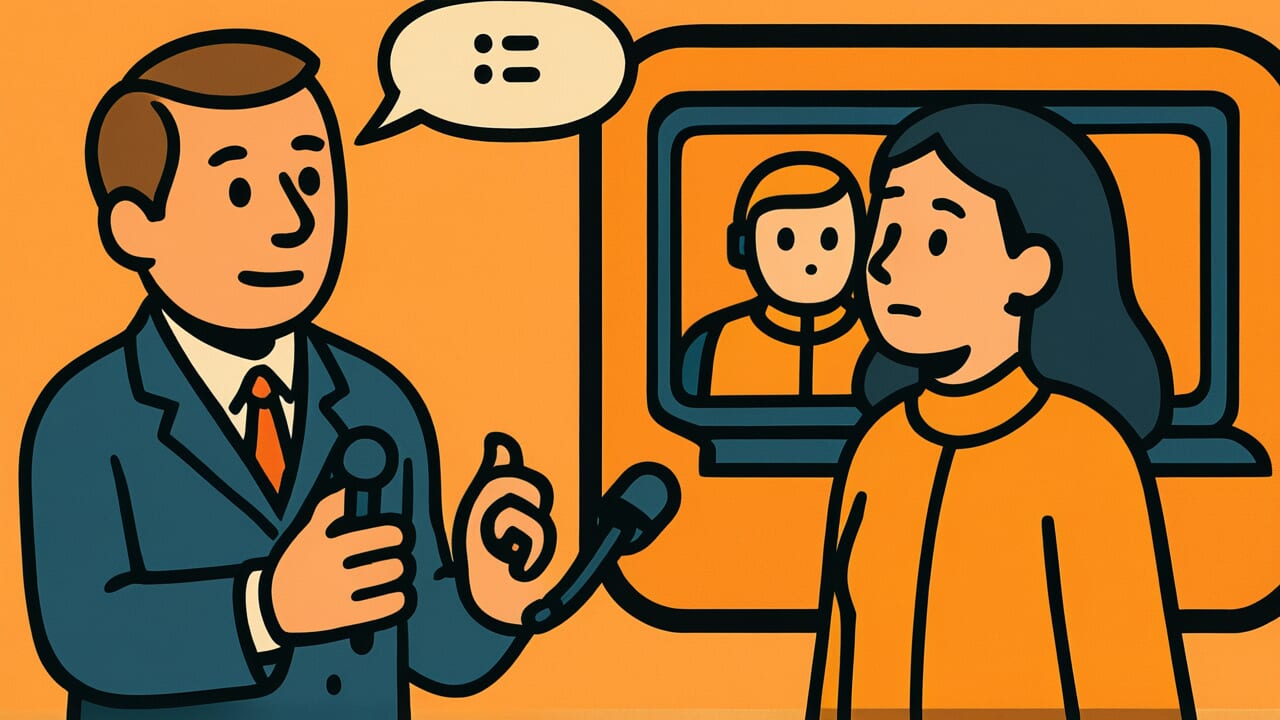How to Read “Speak when you are spoken to”
“Speak when you are spoken to”
[speek when yoo ar SPOH-ken too]
All words use standard pronunciation.
Meaning of “Speak when you are spoken to”
Simply put, this proverb means you should wait for others to address you before joining a conversation.
The literal words tell us to respond only when someone talks directly to us. The deeper message is about showing respect through restraint. This wisdom teaches us that good manners often mean holding back our words until the right moment arrives.
We use this idea today in many situations. Job interviews work better when you answer questions instead of talking randomly. Meetings run smoother when people wait their turn to speak. Even family dinners go better when everyone listens before jumping into conversations.
What’s interesting about this wisdom is how it balances two needs. We all want to share our thoughts and be heard by others. But we also need order and respect in our social groups. This saying reminds us that sometimes the best way to be heard is to first show we can listen.
Origin and Etymology
The exact origin of this phrase is unknown, but it appears in English texts from several centuries ago.
This type of saying became important during times when social hierarchy mattered greatly. Children were expected to show respect to adults through careful speech. Servants needed to know their place when speaking to employers. The phrase reflected a world where your social position determined when you could talk.
The saying spread through families, schools, and workplaces as a basic rule of politeness. Over time, it moved from strict social control to general good manners. Today we use it less as a rigid rule and more as guidance for respectful communication. The core idea survived because every generation needs to learn when speaking helps and when it hurts.
Interesting Facts
The phrase uses a passive voice construction that was more common in older English. “You are spoken to” puts the focus on receiving communication rather than giving it. This grammatical choice reinforces the message about waiting and responding rather than initiating conversation.
The concept appears in similar forms across many languages, suggesting this social rule developed independently in different cultures. Most societies created some version of this wisdom to teach children appropriate communication timing.
Usage Examples
- Mother to child: “Stop interrupting the adults – speak when you are spoken to.”
- Teacher to student: “Wait for your turn during the presentation – speak when you are spoken to.”
Universal Wisdom
This proverb reveals a fundamental tension in human social life between individual expression and group harmony. Every person carries an innate drive to communicate their thoughts and feelings. Yet every group needs some structure to function without chaos. This saying captures the delicate balance between speaking up and holding back.
The wisdom addresses a core survival mechanism that helped our ancestors thrive in groups. Those who learned to read social cues and time their words appropriately gained acceptance and protection. Those who spoke without awareness often found themselves isolated or rejected. The ability to wait for appropriate moments to speak became a crucial social skill that determined who prospered within the community.
This pattern persists because it serves both individual and collective needs simultaneously. When people follow this guidance, conversations become more meaningful and productive. Everyone gets heard because there’s less interruption and competition for attention. The speaker feels respected because others wait for natural pauses. The listeners feel valued because their responses are invited rather than ignored. This creates a positive cycle where communication actually improves when it’s more controlled rather than completely free.
When AI Hears This
Speaking rights work like invisible money in every conversation. People naturally track who has earned attention and who owes it. When someone talks without permission, others feel something was stolen. This mental accounting happens automatically in our brains. We calculate speaking debts without even realizing it.
Humans evolved this system because attention truly is scarce and valuable. In any group, only one person can speak effectively. Everyone else must listen or chaos erupts completely. The brain treats speaking time like limited food or shelter. We hoard it, spend it carefully, and notice unfair distribution. This explains why interrupting feels so personally offensive to people.
This invisible economy reveals remarkable human sophistication in social situations. A child learns these complex rules without formal teaching. They sense when they have earned speaking rights. They feel the group’s attention shift like physical weight. This unconscious brilliance lets humans cooperate in ways other animals cannot achieve.
Lessons for Today
Living with this wisdom requires developing sensitivity to social rhythms and communication flow. The challenge lies in recognizing when silence serves everyone better than immediate response. This doesn’t mean becoming passive or never initiating conversations. Instead, it means learning to read the room and understand when your words will be most welcome and effective.
In relationships, this wisdom helps prevent the common problem of talking past each other. When family members or friends practice this approach, discussions become more like tennis matches than shouting contests. Each person gets to finish their thoughts before others respond. Arguments become less heated because people feel heard rather than interrupted. The key is distinguishing between conversations where you’re invited to participate and situations where you’re expected to wait.
For groups and communities, this principle creates space for everyone’s voice while maintaining productive dialogue. Meetings work better when participants respond to specific points rather than launching into unrelated topics. Classrooms function more smoothly when students engage with the lesson rather than competing for attention. The wisdom scales up because it’s really about creating turn-taking systems that serve everyone’s need to communicate. The goal isn’t permanent silence but rather strategic timing that makes all voices more powerful when they’re finally heard.



Comments